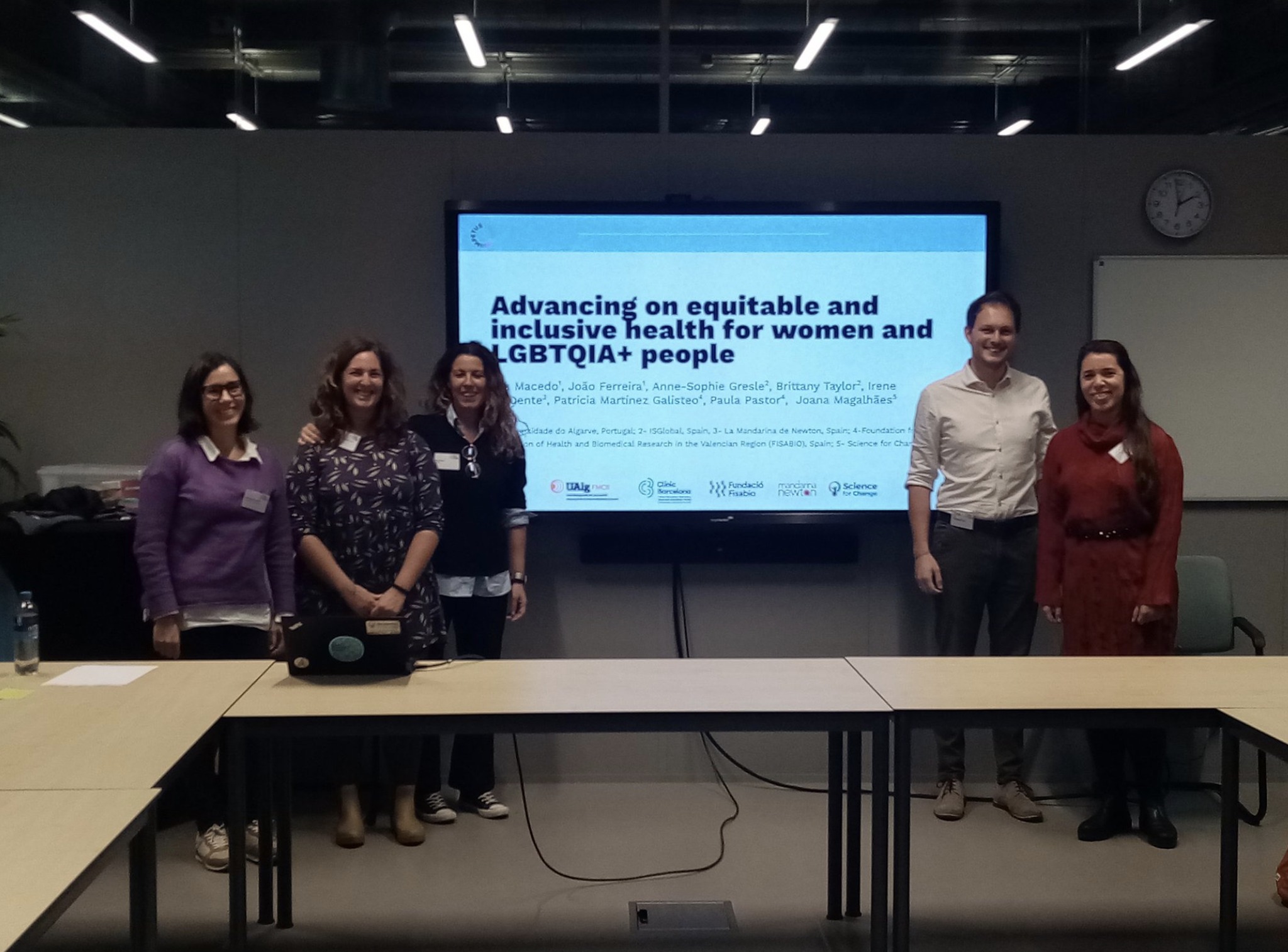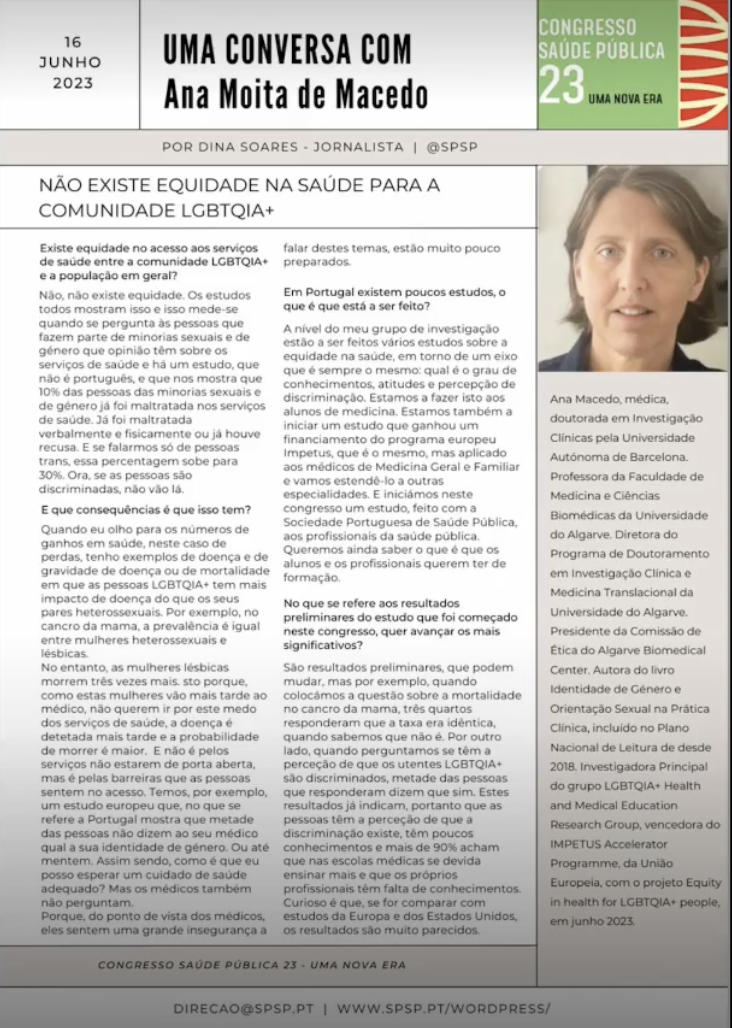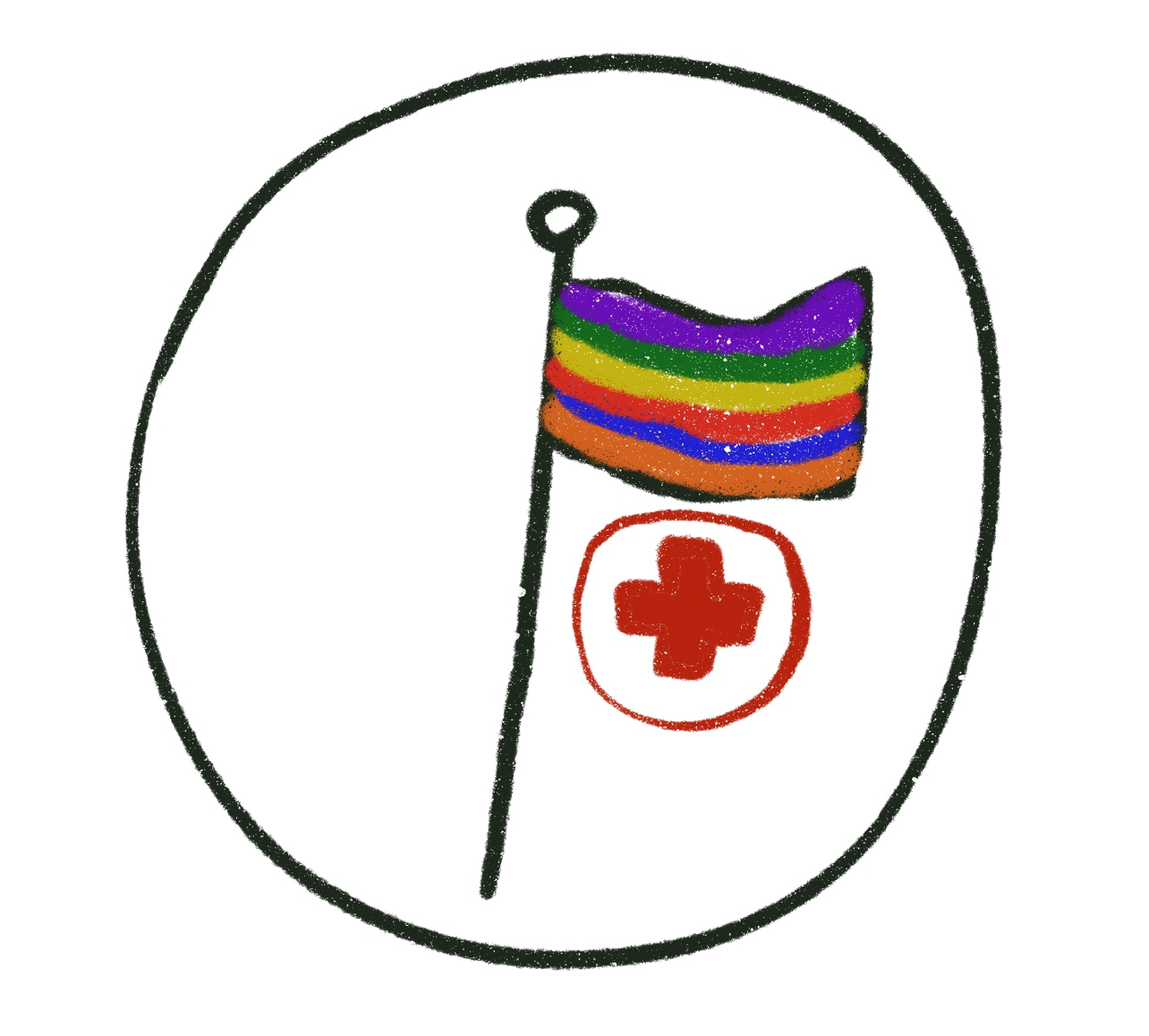Project Description:
This project’s main goal is to contribute to improving the health status and equity of people belonging to sexual and/or gender minorities (LGBTQIA+), by assessing the knowledge and raising the awareness of health professionals working in primary health care in the Algarve Region, regarding health disparities of LGBTQIA+ people.
Project Type: Kick Starter
Theme: Cities for Life, Health
Mentor: Joana Magalhaes
Equity in health for LGBTQIA+ people
Ana Macedo
The project “Equity in health for LGBTQIA+ people” involved healthcare professionals, LGBTQIA+ people, including team members and healthcare professionals who identify as LGBTQAI+ themselves.
The project aimed to assess the level of practical knowledge and perceived discrimination of healthcare professionals and medical students in Portugal regarding the health of LGBTQIA+ people. The project involved students from the University of the Algarve, primary health care professionals from Lisbon and the Algarve, and members of the LGBTQIA+ community.
Over the course of six months, we collected information from almost 600 people through our questionnaire and conducted a focus group with members of the LGBTQIA+ community.
The results of our survey confirm that knowledge of specific health issues faced by LGBTQIA+ people is low and perceptions of discrimination in healthcare are high.
We had the opportunity to present the topic at the Portuguese Congress of Public Health, the Congress of General and Family Medicine of the Algarve, Citizen Science 4 Health in the Netherlands, the National Citizen Science Meeting and the National Congress of Psychiatry. At each of these events, we shared findings, challenges and experiences and discussed equity and inclusion in relation to the health of LGBTQIA+ people.


After a lot of brainstorming within our project, two of the team members founded a diversity, equality and inclusion consultancy that is taking the first steps towards more inclusion in organizations in Portugal.
Besides the scientific sessions, we disseminated the results and some training videos through social media and general newspapers.
We believe that true inclusion is not possible if health professionals and LGBTQIA+ people do not trust each other. Trust is established in various ways, one of which is mutual knowledge.
IMPETUS was decisive in making the project credible and highlighting the importance of the topic and was a huge facilitator in the possibility of interacting with scientific societies, the university and health care authorities.
The challenge for the future is to continue this project, gather more information and transform it into knowledge among health professionals, the LGBTQAI+ community and health professionals who are themselves part of the LGBTQIA+ community. In addition, it is essential to continue to engage in awareness-raising and training initiatives and to call for active participation in favour of true inclusion.
This project has shown how important it is to do more for the equality and inclusion of LGBTQAI+ people in the health sector. The following points remain for the future: the desire to introduce changes in the curricula of medical schools to include this topic; and also, the desire to implement an LGBTQIA+ people health data observatory that will allow us to understand the specific health issues on a broader scale. Only a greater understanding and the joint participation of LGBTQIA+ people and all health professionals can lead to success.



